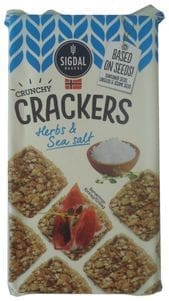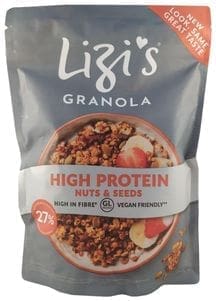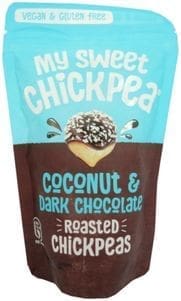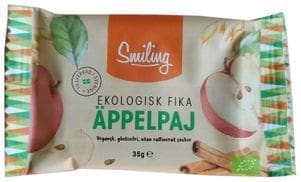-
Articles + –
Ingredients to watch in bakery, snacks and cereals
Mintel Global Food and Drink Analyst Katya Witham discusses five ingredients that are making an impact on bakery, snacks and cereals in 2021 and beyond.
Seeds
Seeds and kernels are nutrient powerhouses that have an opportunity to grow in bakery, cereals and snacks, offering new flavours, textures and nutrition.
Seeds and kernels are expanding across bakery, cereals and snacks

The health halo of seeds and kernels in snacks can inspire other categories to use these nutrient-dense ingredients. A high majority of nut and seed consumers in China agree nuts and seeds are high in protein and dietary fibre , and are a good source of vitamins (75%). Beyond bakery, in the US, more than two in five plant-based meat substitute consumers are interested in seeds as a source of protein in those products, according to Mintel research on plant-based proteins.
Texture can also be improved by formulating with seeds
While the growing usage of seeds can largely be attributed to positive messages around health, formulating with seeds can also add flavour and texture to an increasingly wide variety of snack foods and baked goods. Seeds that are underutilised, or unknown to consumers, can be added to a mix containing more common ingredients, such as ancient grains and nuts, to bring taste and texture. Especially in sweet goods, such as flapjacks, crackers, cookies and biscuits, seeds can be used to enhance health credentials while also striking a chord with those consumers looking for a sweet, yet more health-oriented treat without compromising on taste.
Oats

With their rich nutritional profile, versatility and eco-friendliness, oats are well placed to become a superstar ingredient across the bakery, snacks and cereal category.
‘Good for you, good for the environment’
Not only are oats a healthy choice for consumers, they are also healthy for the environment. They are particularly valuable in environmentally sustainable crop rotation systems, helping to ensure sound cropping and soil conservation practices. Oats are an ideal low-input crop that encourages diversity to reduce soil erosion and control plant diseases, insects and weeds. Recognised as an eco-friendly ingredient, oats can grow their presence in new product development across food and drink, providing a nutritious option for companies that are looking to create stronger sustainability practices, thus tapping into Mintel’s 2030 Food and Drink Trend, ‘Change, Incorporated.’
Probiotics

Once the purview of dairy and savoury categories, probiotics have the potential to grow in bakery, snacks and breakfast cereals, offering gut-health-related benefits along with indulgence.
Boost the body’s defense system with the right probiotics
Probiotics offer several functional properties beyond gut health, including stimulation of the immune system. Probiotics that are proven to support immune health will appeal to consumers who are taking a proactive approach to health. While the immune system is complex, research is exploring the role probiotics may have in supporting the body’s defense system. A recent study found that a combination of probiotics could significantly reduce the incidence of upper respiratory infections. The COVID-19 crisis is leaving consumers to grapple with uncertainty. Food and drink products that offer immune system support will appeal to consumers who are looking to protect themselves, a concept explored in Mintel Trend, ‘Prepare for the Worst.’
Pulses
Pulses and pulse flour have the potential to grow, especially in vegan products and gluten-free products that could benefit from a nutritional boost.

Pulses are an obvious but underused way to boost plant power in bakery, snacks and cereals
For many reasons, pulses should be an obvious choice for manufacturers of bakery, snacks and cereals who are looking to bolster the ‘plant power’ halo of their products. Pulses are widely recognised and accepted by consumers globally as a plant-based source of protein and other nutrients. They can be grown sustainably and are generally cost-effective. Despite this, just under one in 10 bakery, snacks and cereal launches have contained pulses/pulse flour between May 2020 and April 2021. The COVID-19 pandemic should be a catalyst for increased inclusion of pulses in this space. Additionally, healthy pulses, such as chickpeas, lentils and fava beans, are staples in many ethnic cuisines, offering manufacturers a pathway for product innovation for convenience-seeking ethnic food explorers.
Coconut palm sugar
Coconut palm sugar has potential to capitalise on the current trend for ‘raw’, less-processed foods, as well as consumers’ desire for the organic and natural.
The rise of coconut sugar

Coconut sugar (also called coconut palm sugar) is a natural unrefined sugar made from the sap of coconut tree flower blossoms, and is often promoted as being more nutritious and lower on the glycaemic index than regular sugar. With an ever-increasing coconut health craze, coconut sugar clearly benefits from the health halo established by other coconut products, such as coconut water, coconut milk and coconut oil. Over the past three years, new bakery, snacks and breakfast cereal launches that use coconut palm sugar have seen a significant increase globally, albeit from a small base. Although coconut sugar can’t be hailed as a nutritional superfood, the product still has an opportunity to satisfy consumer interest in natural and unprocessed ingredients. Moreover, coconut sugar is often marketed as more eco-friendly than regular cane sugar, appealing to the growing ranks of green consumers.
Growing demand for natural sweeteners
As consumers are becoming more determined to make healthier diet and lifestyle choices, the level of public scrutiny over ingredients in food and drink products has never been higher. Sugar, in particular, has fallen under the public, political and media spotlight, overtaking fat and salt as the primary consumer concern. High sugar consumption is increasingly blamed for rising rates of obesity and diabetes, putting the food and drink industry under pressure to satisfy consumer demand for healthy yet tasty products. With growing awareness of the negative impact that refined sugar can have on one’s health, more and more consumers are embarking on a quest to find healthier sweetener options. Since health is often equated with naturalness, consumers will be increasingly opting for natural sugar substitutes, such as honey, coconut palm sugar, agave nectar or stevia.
What we think
Consumers increasingly look to their diet to improve both their personal health and planetary health and are interested in food and drink products that are natural sources of nutrients and also deliver on taste and address key sustainability issues. Beyond free-from and plant-based products, gut health could be the answer for bakery, snack and cereal brands looking for the next big health platform.

Katya Witham is Senior Food & Drink Analyst, identifying and exploring the major trends across various FMCG categories, giving invaluable insights into global markets.
-
Mintel StoreGet smart fast with our exclusive market research reports, delivering the latest data, innovation, trends and strategic recommendations....View reports
-
Mintel LeapMintel Leap is a revolutionary new AI-powered platform that will transform your research process....Book a demo







































